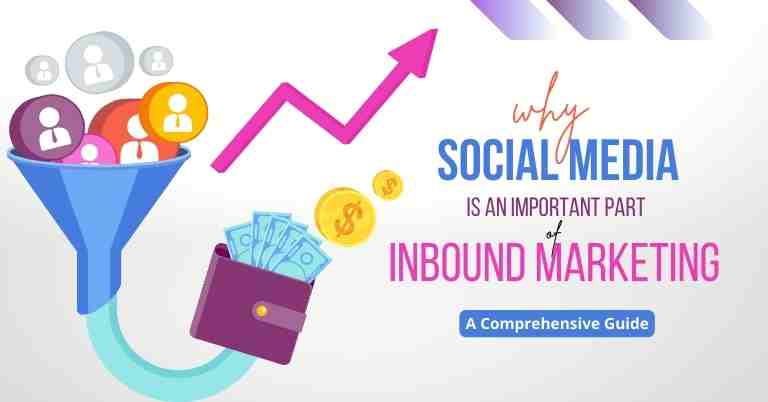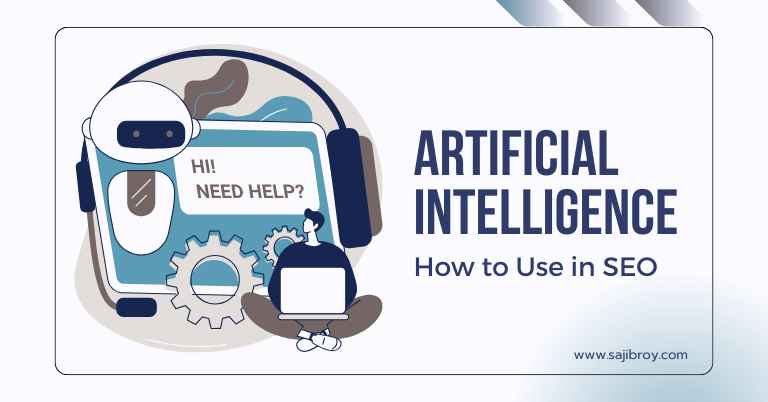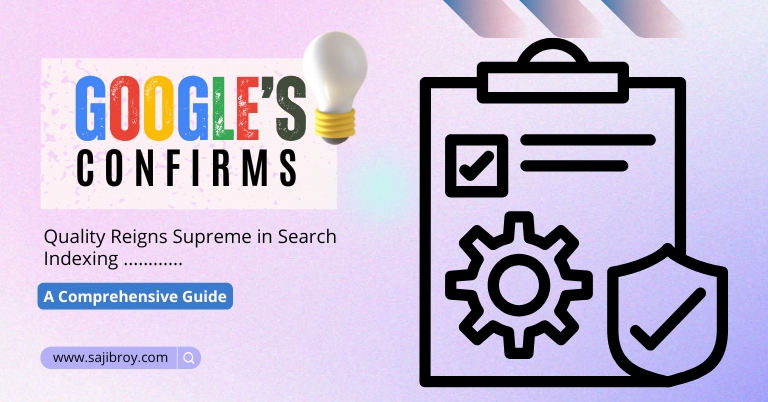Social media is the ultimate playground for inbound marketers, providing endless opportunities to engage, inspire, and convert your audience.
As proficient SEO and high-end copywriter, we know that inbound marketing is crucial for any business, and social media plays a vital role in inbound marketing. Social media platforms such as Facebook, Twitter, Instagram, LinkedIn, and others have become an essential part of people’s daily lives. As a result, social media has become an excellent platform for businesses to reach out to their target audience and create brand awareness. In this article, I will discuss why social media is an important part of inbound marketing and how it can help businesses to grow.
RELATED TOPIC:
- Why Do You Think You Would Succeed In Marketing?
- How Can Audience Segmentation Enhance Your Inbound Marketing Efforts?
- Top 8 Social Media Marketing Channels that Develop Your Brand
- Which Aspect of Marketing has not Changed with Digital Media?
- Why Do You Think You Would Succeed as a Social Media Manager?
- How can Social Media Listening Increase Customer Advocacy?
Let's See the Topic Overview
What is Inbound Marketing?
Inbound marketing is not just a strategy, it’s a mindset – a commitment to delivering value, building trust, and creating memorable experiences for your customers.
Inbound marketing is a marketing strategy that focuses on attracting, engaging, and delighting customers through valuable content, personalized experiences, and building long-term relationships. The goal of inbound marketing is to attract customers to a brand or business, rather than pushing marketing messages on them through traditional advertising methods.
A good example of inbound marketing is a blog that provides useful and informative content that is relevant to the target audience. By creating content that provides value, a brand can attract potential customers to its website and build trust and credibility with them. Once on the website, the brand can offer further content or products that align with the interests of the audience, converting them into leads or customers.
Inbound marketing is typically broken down into four stages:
- Attract
- Convert
- Close and
- Delight
Attracting potential customers is done through various methods such as SEO, social media, and content marketing. Once visitors are on the website, the goal is to convert them into leads by offering something of value, such as a free download, a newsletter subscription, or a consultation.
The next stage is closing, where leads are nurtured through personalized email marketing campaigns, targeted ads, or sales calls. The goal is to move the leads through the sales funnel toward becoming paying customers.
Finally, the delight stage is all about ensuring customer satisfaction and loyalty through ongoing communication, support, and follow-up. By providing excellent customer service and support, businesses can create brand advocates who will promote their products or services to others.
Inbound marketing is an effective way for businesses to build relationships with potential customers, create brand awareness, and drive conversions. By providing value to their audience through useful content, personalized experiences, and ongoing support, businesses can create a loyal customer base that will not only continue to purchase their products or services but will also promote them to others.
In conclusion, inbound marketing is a customer-centric approach to marketing that focuses on building long-term relationships through valuable content, personalized experiences, and ongoing support. By implementing an inbound marketing strategy, businesses can attract potential customers, convert them into leads, close the sale, and delight them with excellent customer service, creating a loyal customer base that will promote their brand to others.
Relationship Between Inbound Marketing and Social Media
The relationship between inbound marketing and social media is symbiotic, with each fueling the other’s success – inbound marketing provides the strategy, while social media provides the platform for execution.
The relationship between inbound marketing and social media is a close and important one. Inbound marketing focuses on attracting potential customers to a brand through valuable content and personalized experiences, and social media provides an excellent platform for reaching and engaging with a wide audience. In this article, we will explore the ways in which social media can enhance inbound marketing efforts and how inbound marketing strategies can be adapted for social media platforms.
First and foremost, social media is an excellent way to attract potential customers to a brand or business. Social media platforms such as Facebook, Instagram, Twitter, and LinkedIn offer a wide audience base that can be reached through targeted advertising, engaging content, and social media influencer partnerships. By creating compelling content that resonates with the target audience and sharing it on social media platforms, businesses can attract potential customers and build brand awareness.
Secondly, social media provides an excellent platform for engaging with potential customers and building relationships with them. By responding to comments, messages, and reviews, businesses can show that they value their customers and are committed to providing excellent customer service. Additionally, by creating personalized experiences such as social media contests or giveaways, businesses can build excitement and loyalty among their followers.
Social media also offers an opportunity for businesses to convert potential customers into leads through lead-generation campaigns. By offering something of value such as a free download or a newsletter subscription in exchange for contact information, businesses can nurture leads and move them closer to becoming paying customers.
Finally, social media can be used to delight customers and encourage them to become brand advocates. By providing ongoing support, personalized communication, and exclusive offers to social media followers, businesses can create loyal customers who will not only continue to purchase their products or services but also promote them to others on social media.
When adopting inbound marketing strategies for social media, it is important to remember that each platform has its own unique features and audience. For example, Instagram is known for its visual content, while Twitter is known for its short and snappy updates. By tailoring content and messaging to each platform, businesses can optimize their social media presence and engage with their audience in a meaningful way.
Social media is an important part of inbound marketing, providing a platform for attracting, engaging, and delighting potential and current customers. By creating valuable content, responding to customer interactions, and offering personalized experiences, businesses can build relationships with their audience and convert them into loyal customers and brand advocates. When adopting inbound marketing strategies for social media, it is important to consider the unique features and audience of each platform and tailor content and messaging accordingly.
Why Is Social Media an Important Part of Inbound Marketing?
Social media has become an integral part of our daily lives, and its impact on businesses and marketing strategies cannot be ignored. In recent years, inbound marketing has emerged as a popular approach that focuses on attracting potential customers through valuable content and personalized experiences. Social media plays a crucial role in this approach, providing a platform for businesses to reach and engage with their target audience in a more personal and authentic way. Let’s explore why is Social Media an important part of inbound marketing-
14 Important Causes – Why Is Social Media an Important Part of Inbound Marketing?
1. Build Brand Awareness
Social media platforms have billions of active users, making them a great place for businesses to increase brand visibility. By creating a business profile on different social media platforms, businesses can reach out to a broader audience and increase their brand awareness. Social media allows businesses to interact with their target audience, share information about their products or services, and build a loyal customer base.
2. Drive Traffic to the Website
Social media can be an excellent source of the traffic to a business website. By posting engaging content, businesses can encourage their followers to visit their websites and learn more about their products or services. Social media platforms also allow businesses to use call-to-actions (CTAs) to encourage their followers to take specific actions, such as subscribing to their newsletter, signing up for a free trial, or making a purchase.
3. Build Relationships with Customers
Social media allows businesses to connect with their customers on a more personal level. By engaging with their followers through comments, direct messages, and posts, businesses can build a relationship with their customers. This can help businesses to understand their customers’ needs better, improve their products or services, and build a loyal customer base.
4. Generate Leads
Social media platforms such as LinkedIn can be an excellent source of leads for B2B businesses. By creating a business profile on LinkedIn, businesses can connect with other businesses in their industry, generate leads, and increase their sales. Social media also allows businesses to use lead generation forms to collect information about their potential customers, such as their names, email addresses, and phone number.
5. Improve Customer Service
Social media can also be an excellent platform for businesses to provide customer service. By responding to customers’ queries, complaints, and feedback, businesses can improve their customer service and build a loyal customer base. Social media also allows businesses to resolve customer issues quickly, which can help to improve their reputation and increase customer satisfaction.
6. Provide Valuable Insights
Social media platforms provide businesses with valuable insights about their target audience. By analyzing data such as engagement rates, click-through rates, and demographics, businesses can gain insights into their customers’ preferences and behavior. This can help businesses to refine their marketing strategy and create content that resonates with their target audience.
7. Stay Competitive
Social media has become an essential part of modern-day marketing, and businesses that fail to leverage its potential risk falling behind their competitors. By creating a strong social media presence, businesses can keep up with the latest marketing trends and stay competitive in their industry.
8. Build Authority
Social media platforms allow businesses to establish themselves as thought leaders in their industry. By sharing valuable content, industry insights, and expertise, businesses can build authority and credibility with their target audience. This can help to increase brand loyalty and drive conversions.
9. Expand Reach
Social media platforms have a global reach, making them an excellent platform for businesses to expand their reach beyond their local market. By creating content that resonates with a global audience, businesses can tap into new markets and reach customers in different parts of the world.
10. Humanize the Brand
Social media allows businesses to humanize their brand and connect with their target audience on a more personal level. By sharing behind-the-scenes content, personal stories, and user-generated content, businesses can build a more emotional connection with their customers. This can help to increase brand loyalty and drive customer engagement.
11. Allows Businesses to Target Specific Audiences
Social media platforms offer a variety of targeting options that businesses can use to reach specific audiences. By targeting based on interests, demographics, location, and behavior, businesses can create highly targeted campaigns that are more likely to resonate with their target audience.
12. Drive Conversions
Social media can help businesses to drive conversions by creating a seamless customer journey. By using social media to promote their products or services, businesses can guide customers through the sales funnel and encourage them to make a purchase.
13. Foster User-Generated Content
Social media platforms offer a great opportunity for businesses to foster user-generated content. By encouraging users to share their experiences, stories, or feedback, businesses can create a more authentic and engaging social media presence.
14. Amplify Content
Social media can be a powerful tool for content amplification. By sharing their content on social media platforms, businesses can increase its reach and attract new audiences. Additionally, social media users are more likely to engage with and share content that they find interesting or valuable, which can help to increase brand awareness and drive conversions.
Conclusion
In summary, social media offers many benefits for businesses, including the ability to target specific audiences, generate leads, drive conversions, provide better customer service, and foster user-generated content. By incorporating social media into their inbound marketing strategy, businesses can build stronger relationships with their customers and achieve their marketing goals more effectively.
FAQs
- 1. What social media platforms should my business be on?
It depends on your target audience and industry. Research which social media platforms your target audience is most active on and focus your efforts there.
- 2. How often should I post on social media?
It is recommended to post at least once a day on most social media platforms. However, the frequency of your posts will depend on your audience and the type of content you are sharing.
- 3. How can I measure the success of my social media campaigns?
Use social media analytics tools to track metrics like engagement, reach, and conversions. This data can help you make data-driven decisions about future marketing strategies.
- 4. How can I create engaging content for social media?
Focus on creating content that is relevant and helpful to your target audience. Use eye-catching visuals and be sure to include a clear
Keep Learning With Sajib Roy



![6-Month Local SEO Plan [Download Your Complete Proposal Template]](https://www.sajibroy.com/wp-content/uploads/2025/01/6-Month-Local-SEO-Plan-Download-Your-Complete-Proposal-Template.jpg)








